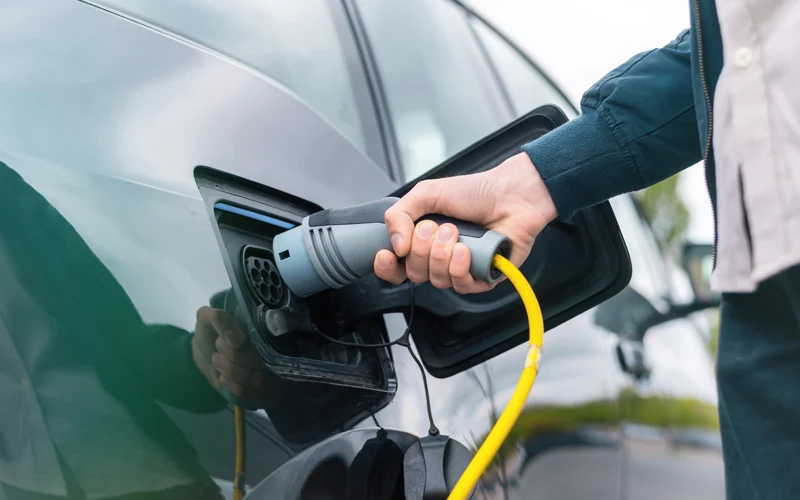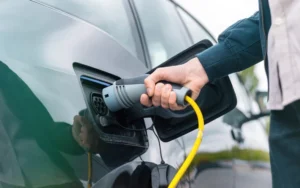Driving Towards a Greener Future: Exploring Alternative Fuel Technologies in Cars

Introduction: In today’s rapidly evolving automotive landscape, the quest for cleaner, more sustainable transportation solutions has never been more urgent. As concerns about climate change, air pollution, and energy security continue to grow, automakers, engineers, and policymakers are turning to alternative fuel technologies as a means of reducing emissions, conserving resources, and mitigating the environmental impact of transportation. Join us on a journey through the exciting world of alternative fuel technologies in cars, where innovation meets sustainability to pave the way towards a greener future.
The Need for Alternative Fuel Technologies: The dominance of fossil fuels in the automotive industry has long been a source of concern due to their contribution to greenhouse gas emissions, air pollution, and dependence on finite resources. As the global population grows, along with the demand for personal transportation, the need for sustainable alternatives to traditional gasoline and diesel-powered vehicles has become increasingly apparent.
Alternative fuel technologies offer a promising solution to these challenges by providing cleaner, more efficient, and renewable sources of energy for powering vehicles. By diversifying the energy sources used in transportation and reducing reliance on fossil fuels, alternative fuel technologies can help mitigate the environmental impact of the automotive sector and create a more sustainable transportation system for future generations.
Types of Alternative Fuel Technologies: There are several alternative fuel technologies currently being developed and deployed in cars, each with its own unique advantages and challenges. Some of the most promising options include:
- Electric Vehicles (EVs): Electric vehicles are powered by electricity stored in batteries, which can be charged from the electrical grid or renewable energy sources such as solar or wind power. EVs produce zero tailpipe emissions, making them a clean and efficient alternative to traditional internal combustion engine vehicles.
- Hybrid Vehicles: Hybrid vehicles combine an internal combustion engine with an electric motor and battery pack to improve fuel efficiency and reduce emissions. By utilizing regenerative braking and electric power assist, hybrids can achieve significant improvements in fuel economy while reducing environmental impact.
- Plug-in Hybrid Vehicles (PHEVs): Plug-in hybrid vehicles are similar to conventional hybrids but feature larger battery packs that can be charged from an external power source. This allows PHEVs to operate in electric-only mode for short distances, reducing fuel consumption and emissions during urban driving.
- Hydrogen Fuel Cell Vehicles: Hydrogen fuel cell vehicles use hydrogen gas to generate electricity through a chemical reaction with oxygen, producing only water vapor as a byproduct. Fuel cell vehicles offer fast refueling times and long driving ranges, making them a promising zero-emission alternative for transportation.
- Biofuels: Biofuels are renewable fuels derived from organic sources such as corn, sugarcane, or algae. Ethanol and biodiesel are two common types of biofuels that can be blended with gasoline or diesel fuel to reduce emissions and dependence on fossil fuels.
Benefits of Alternative Fuel Technologies: Alternative fuel technologies offer numerous benefits compared to traditional gasoline and diesel-powered vehicles. Some of the key advantages include:
- Reduced Greenhouse Gas Emissions: Alternative fuel technologies produce fewer greenhouse gas emissions than conventional vehicles, helping to mitigate climate change and reduce air pollution.
- Energy Independence: By diversifying the sources of energy used in transportation, alternative fuel technologies can reduce dependence on imported oil and enhance energy security.
- Improved Air Quality: Electric vehicles and other alternative fuel vehicles produce zero tailpipe emissions, leading to improved air quality and public health in urban areas.
- Economic Opportunities: The transition to alternative fuel technologies creates new opportunities for innovation, investment, and job creation in industries such as renewable energy, advanced manufacturing, and transportation.
Challenges and Considerations: While alternative fuel technologies hold great promise for the future of transportation, they also face several challenges and considerations that must be addressed to realize their full potential. These include:
- Infrastructure: The widespread adoption of alternative fuel vehicles requires investment in charging infrastructure for electric vehicles, hydrogen refueling stations for fuel cell vehicles, and distribution networks for biofuels.
- Cost: Alternative fuel vehicles often have higher upfront costs compared to conventional vehicles, although prices are expected to decline as technology improves and economies of scale are achieved.
- Range and Performance: Range anxiety and performance limitations remain barriers to adoption for some alternative fuel vehicles, particularly electric and hydrogen fuel cell vehicles, although advances in battery technology and infrastructure are helping to address these concerns.
- Policy and Regulation: Government policies and regulations play a critical role in incentivizing the adoption of alternative fuel technologies through measures such as subsidies, tax incentives, and emissions standards.
Conclusion: Alternative fuel technologies represent a promising pathway towards a greener, more sustainable future for transportation. By diversifying the sources of energy used in cars and reducing reliance on fossil fuels, these technologies offer a pathway to reduce greenhouse gas emissions, improve air quality, and enhance energy security. While challenges remain, ongoing innovation, investment, and collaboration among policymakers, industry stakeholders, and consumers can help accelerate the transition to a cleaner and more sustainable transportation system for generations to come.




